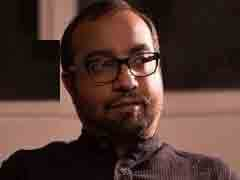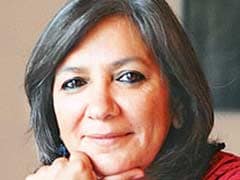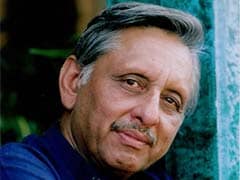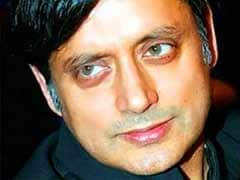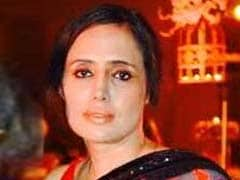- Home/
- Obama begins India trip on a sombre note in Mumbai
Obama begins India trip on a sombre note in Mumbai
But he began on a sombre and symbolic note, by paying respects to the victims of the 2008 terrorist siege here. (See pics)
Soon after Air Force One touched down here, Mr. Obama and his wife, Michelle, headed to the iconic Taj Mahal Palace and Tower Hotel, which bore the brunt of the so-called 26/11 attacks. (Read: Day 1 highlights of visit)
The president and his entourage are staying at the hotel, which is home a memorial to the more than 170 people who were killed during a highly-coordinated four-day siege that began on November 26, 2008.
"To those who have asked whether this is intended to send a message, my answer is, simply, absolutely," Mr. Obama said, after he and Mrs. Obama signed a guest book at the memorial and met briefly with victims of the attacks.
"Ever since those horrific days two years ago, the Taj has been the symbol of the strength and resilience of the Indian people. So we use our visit here to send a very clear message that in our determination to give our people a future of security and prosperity, the United States and India stand united." (Watch: Obama quotes Nehru, mentions Gandhi in speech at Taj Hotel)
Mr. Obama expressed similar sentiments in the guest book.
"We will always remember the events of 26/11; not only the sorrow, but also the courage and humanity that was displayed that day," he wrote.
"The United States stands in solidarity with all of Mumbai and all of India in working to eradicate the scourge of terrorism, and we affirm our lasting friendship with the Indian people."
He signed his name and the date; Mrs. Obama signed her name next to his.
From there Mr. Obama was to make yet another highly symbolic stop, a visit to Mani Bhavan, a quaint home in Mumbai where Mahatma Gandhi lived from 1917 to 1934.
The three story home is now a museum. Mr. Obama has expressed deep admiration for Gandhi. During a talk with students in Arlington, Va., last year, he was asked if he could have dinner with anyone dead or alive, who would it be. "You know, I think that it might be Gandhi, who is a real hero of mine," Mr. Obama said, adding "what was interesting was that he ended up doing so much and changing the world just by the power of his ethics, by his ability to change how people saw each other and how they saw themselves."
The Asia trip is Mr. Obama's first extended foreign foray this year, and he arrives weakened by the self-described "shellacking" he took in the recent mid-term elections.
With voters expressing deep discontent over his stewardship of the economy, the president will move quickly to demonstrate that he has taken notice of their concerns.
Specifically, White House officials say Mr. Obama is expected to announce several new deals involving American companies that do business in India, as well as a liberalization of the so-called "dual use" restrictions that bar American firms from exporting certain high-tech goods -- particularly those suitable for building space weapons -- to India. (Read: American jobs top Obama's agenda in India)
The restrictions date to nuclear tests India conducted in 1998, are widely viewed as outmoded given that the United States and India signed a civil nuclear cooperation pact under Mr. Obama's predecessor, George W. Bush.
"There are strong rumors that very archaic export control systems that exist between the U.S. and India, we may be able to see a liberalization of that," David Cote, chief executive of Honeywell, told reporters here.
Mr. Cote, a member of Mr. Obama's economic recovery board and also his debt commission is among a group of executives who will meet with Mr. Obama later on Saturday.
Lifting the export controls, he said, "is good for trade, which means it is good for jobs in both countries."
The trip will also take Mr. Obama to Indonesia, his boyhood home for four years, South Korea -- where he hopes to seal a renegotiated free trade pact with that country while attending the G20 gathering of world leaders -- and Japan, for the Asia Pacific Economic Cooperation summit.
Here in Mumbai, his Saturday agenda is heavy on meetings with business executives, who coordinated a gathering of the U.S.-India Business Council with Mr. Obama's visit.
"The whole focus," Mr. Obama told reporters in Washington during a White House news conference on Wednesday, "is on how are we going to open up markets so that American businesses can prosper, and we can sell more goods and create more jobs here in the United States."
India, though, is a delicate place for Mr. Obama to talk about creating American jobs. As a candidate, he often complained about outsourcing, telling American companies they should be creating jobs in "Boston, not Bangalore."
But in the wake of the elections, the president has conceded he must soften his strained relationship with business.
He said at the news conference that "setting the right tone publicly is going to be important." While here, he is showering attention on American chief executives.
Several, including Mr. Honeywell, spoke to reporters at the White House's request. Jim McNerney, the Boeing C.E.O. who also chairs the President's Export Council, greeted the president when Air Force One touched down on the tarmac here and flew with Mr. Obama aboard the president's helicopter to downtown Mumbai.
Mr. Obama determined early in his administration that the United States had not paid enough attention to Asia and, broadly speaking, his trip is aimed at building stronger relations with emerging powers like India and Indonesia, and cementing existing ties with South Korea and Japan.
That the countries are all democracies is no accident. Notably, the president will not visit China - a decision that is perhaps unsurprising, given the rough ride he had there last November, when Chinese authorities packed a town hall meeting he had planned with Shanghai students with young Communist Party aspirants.
Mr. Obama can ill afford such unflattering scenes now, as he tries to restores his image as a strong leader in the wake of the beating his party took at the polls.
White House officials are mindful of the optics of this trip, and they have taken pains to put Mr. Obama in settings where he is likely to be greeted by enthusiastic, if not adoring crowds.
On Sunday in Mumbai, he will have a give-and-take with young people. But the heartiest welcome for Mr. Obama is likely to be next week in Jakarta, where he has plans to visit the largest mosque in Southeast Asia and also to deliver a major address to the Indonesian people.
Also watch: Did Ashok Chavan break protocol?
................................ Advertisement ................................
Opinion
MoreOpinion: China Has Helped India's Cause With TrumpMihir Sharma, Bloomberg
Thursday June 29, 2017Very little was expected in India from Prime Minister Narendra Modi's visit to the U.S., and for good reason: Modi had gone out of his way to cultivate a personal relationship with Barack Obama, including famously pouring out a cup of tea for him and the cameras when Obama visited India.
Opinion: Modi's US Speech Was Letter Perfect, Ticked Off Every BoxAshok Malik
Friday June 10, 2016Without taking recourse to the old wailing sheet and cribbing to everyone about Islamabad, Modi has devised a mechanism to shape the debate to India's advantage.
Opinion: Modi Ignored Advice To Make Obama Squirm. It Has Paid Off.Jyoti Malhotra
Saturday June 04, 2016The visit to the US in the coming week, in fact, brings Obama's relationship with both Modi and India full circle.
Blogs: कादम्बिनी के कीबोर्ड से : क्या परमाणु करार पर पीछे हटे हम?
Sunday February 08, 2015असल में परमाणु रिएक्टरों में हादसे की सूरत में जो हर्जाना होगा, वह रिएक्टर चलाने वाले को यानि ऑपरेटर को देना होगा। कानून में यह प्रावधान है कि अगर ऑपरेटर चाहे तो वह सामान और ईंधन आपूर्ति करने वाले पर हर्जाने के लिए दावा कर सकता है। लेकिन यहां पर समझने वाली बात यह है कि ऑपरेटर कौन होगा।
Opinion: Mani-Talk: Modi is Turning Us into America's New PakistanMani Shankar Aiyar
Thursday February 12, 2015In "Cold War II", battlefield could be India, writes Mani Shankar Aiyar.
Opinion: Obama Had Pointed Message for Modi 2.0Shashi Tharoor
Wednesday January 28, 2015Clear warning that PM will fail if he reverts to Modi 1.0, writes Shashi Tharoor.
Opinion: What Pakistan Makes of Obama-Modi ChemistryMehr Tarar
Tuesday January 27, 2015Acceptance of Modi's goal-oriented leadership, writes Mehr Tarar.



